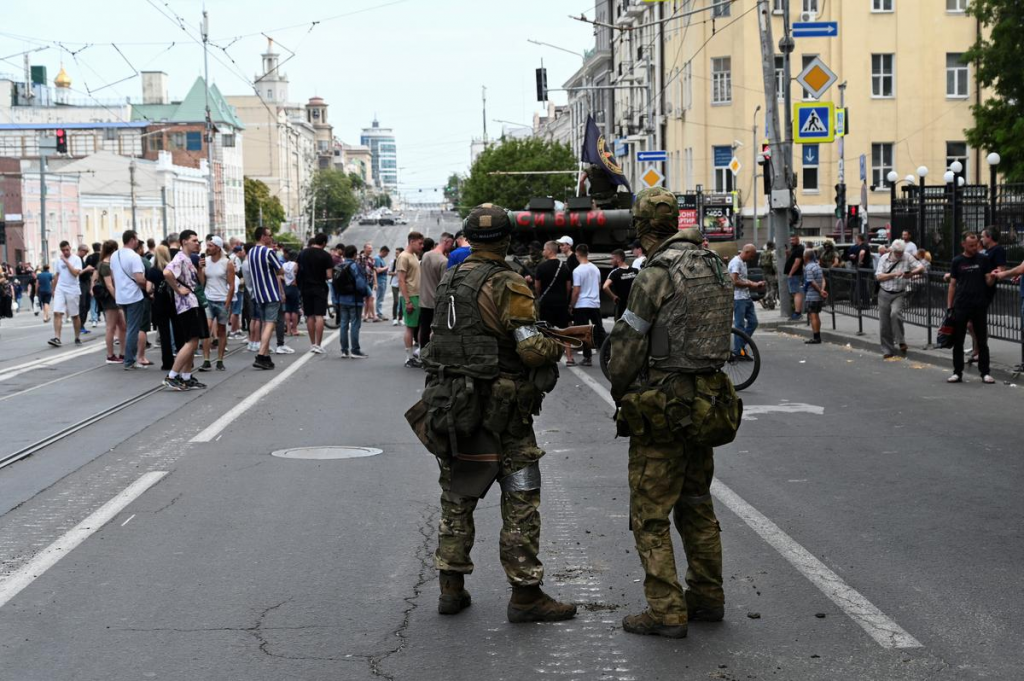
Introduction
In a significant development that has caught the attention of geopolitical observers, Russia has announced that the leader of the Wagner Group, a private military contractor, will be moving to Belarus following a controversial march that challenged President Vladimir Putin’s authority. This move is expected to have far-reaching implications for the region and is likely to shape the dynamics between Russia and Belarus in the coming months.
Background: The Wagner Group’s Rebellious March
The Wagner Group, known for its involvement in various conflict zones, has been a subject of intense scrutiny due to its close association with the Russian government. The private military contractor, believed to have ties with the Kremlin, has often been deployed to advance Russia’s strategic interests abroad.
In recent weeks, the Wagner Group organized a march in Russia, which was seen by many as a direct challenge to President Putin’s leadership. The march, led by the group’s leader, attracted significant attention and sparked debates about the increasing influence of private military contractors in Russian politics.
Russia’s Response: Leader’s Relocation to Belarus
In an unexpected turn of events, the Russian government has announced that the leader of the Wagner Group will be relocating to Belarus. This move is widely seen as a strategic decision to diffuse tensions within Russia and avoid further challenges to President Putin’s authority.
Implications for Russia-Belarus Relations
The relocation of the Wagner Group’s leader to Belarus carries significant implications for the already complex relationship between the two countries. Belarus, under the leadership of President Alexander Lukashenko, has been grappling with political unrest and international criticism.
By accommodating the leader of the Wagner Group, Belarus risks further straining its relations with the international community. The move is likely to draw attention to Belarus’ close ties with Russia and could result in increased scrutiny from Western nations.
Impact on Geopolitical Dynamics
The Wagner Group’s march and subsequent relocation of its leader to Belarus highlights the evolving dynamics in the region. Russia’s decision to move its leader to a neighboring country indicates a concerted effort to maintain control and influence over Belarus, ensuring that it remains aligned with Russian interests.
This development could also signal a shift in the balance of power within the region. As the Wagner Group establishes a presence in Belarus, it may gain greater leverage in shaping Belarusian politics, potentially undermining President Lukashenko’s authority.
Future Challenges and Consequences
The relocation of the Wagner Group’s leader to Belarus raises several important questions about the future of the region. Will this move lead to increased cooperation between Russia and Belarus, or will it exacerbate existing tensions? How will Western nations respond to Belarus’ close association with the Wagner Group?
Furthermore, the implications of this development extend beyond Russia and Belarus. Other countries, particularly those with private military contractors, may take note of the Wagner Group’s actions and the subsequent response by the Russian government. This could potentially lead to a reevaluation of the role and influence of such contractors in global affairs.
Conclusion
Russia’s announcement regarding the relocation of the Wagner Group’s leader to Belarus marks a significant turning point in the ongoing power struggle within the region. The repercussions of this decision are likely to be felt not only in Russia and Belarus but also across the international community.
As geopolitical dynamics continue to evolve, it is crucial to closely monitor the actions and strategies of private military contractors and their impact on global affairs.


